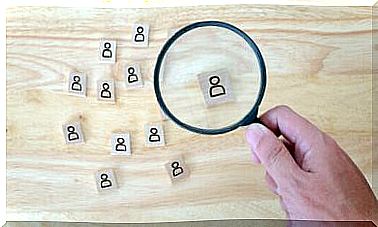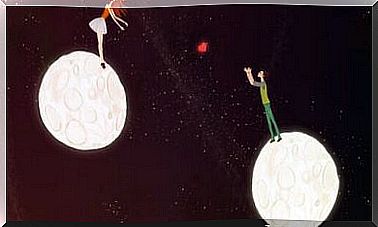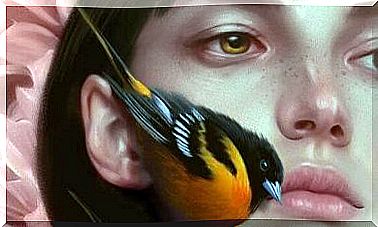Why Do We Dive Into Dependency Relationships?
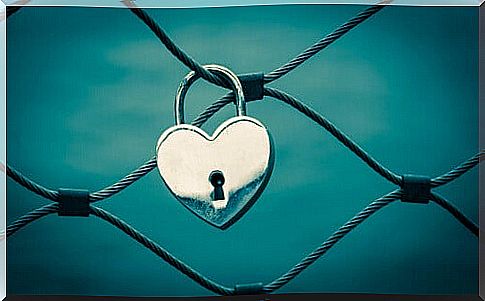
Everyone, regardless of whether we are men or women, young or older, can find ourselves living in a relationship of emotional dependence. Sometimes we think that can’t happen to us, but it’s worth considering that probably these people also thought they would never fall into that pit.
So, before we get too radical with our statements, we should ask ourselves: what can drive us to build a relationship of dependency? What do we feel when we are in a relationship like this? How can we see that we are in a relationship like this?
On the one hand, if we are aware of what a relationship of domination and dependence entails, we can more easily realize that we are in a dysfunctional relationship, and this can give us more strength to change the situation. On the other hand, we can detect when other people are in a dependent relationship, and thus try to warn them judiciously.
We all have expectations about ourselves and the pair that we would like to have. These ideas are influenced by social and cultural beliefs. In our case, we learned that to be happy we have to have a partner and prioritize the couple over something else (Castelló, 2006). We continually look for couple relationships that complete us, so that they fulfill our needs. We look outside instead of looking inside. This makes us not able to be enough for ourselves, that we harbor fears and look to others to obstruct them.
On the other hand, the way to establish affective bonds is very much conditioned by the way we live the attachment behavior in childhood (Guix, 2011). For example, if we have been overprotected, we will feel insecure and will look for people to protect us. On the other hand, if we had little or no affective bond, we would desperately look for someone to give us the affection we need.
The type of relationship we observe between our parents also influences us in our relationships as a couple. For example, if in our environment we witness a relationship of domination and dependence, in which it seems that we can love and receive abuse at the same time, we could establish a relationship of the same style since we know firsthand the mechanisms that maintain it.
Anyway, the ideal would be that we didn’t look for the half of the orange that completes us, since it doesn’t exist. In reality, we are complete and responsible for our own happiness. Furthermore, we would have to create our own criteria when choosing how we want to relate to our peer, without being influenced (too much) by any standard. It’s important to be clear about what we want and what we don’t want in a relationship.
Living in a dependent relationship, we cannot be ourselves, we feel limited and nullified, always trying to please or not to disturb our partner. We feel anxiety, distrust, guilt, fear, etc. “Symptoms” that may be due to low self-esteem, feeling that we are worthless or inferior to our partner, excessively needing the other, feeling fear or intolerance to loneliness.
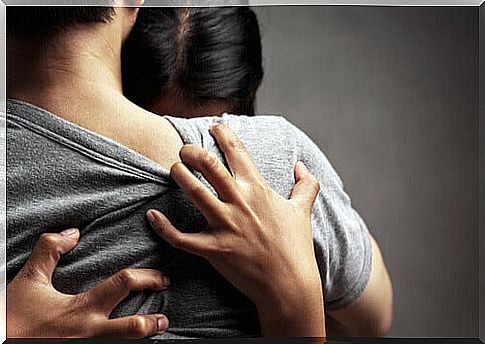
Furthermore, when we are in a toxic relationship, we tend to put up with more than we should : unpleasant comments of devaluation, incriminating looks and silences, censorship, invasion of privacy, constant questions to control, lies… We can even put up with verbal aggression and physical. Sometimes the idealization of the pair leads us to excuse his behavior (tiredness, nervousness, he does the best he can, etc.) and we think this will change. Other times it’s the precipice that we imagine what holds us back.
It is not easy to see that we are in a relationship of emotional dependence, but there are always indicators and signs that reflect this dysfunction, such as emotions. Our own emotions show us that the relationship is not working well. In a healthy relationship we should not feel fear or suffering.
When we are within the relationship, we can lose perspective and see only what we love about our partner. In fact, we don’t see what we’re not willing to see, and we often notice when we’ve come a long way (Grad, 2015). That’s why it’s important to listen and consider – not systematically obey – the honest advice of people who know us well. As much as it displeases us that other people tell us “this person is not for you, you must leave her”, and that we think they don’t understand us… They may be right.

But why do we put up with a relationship that makes us suffer? Especially when it is supposed that it is a free relationship that we have because we believe that our partner is an important support, a source of trust in which we can find some unconditionalness. If this is not the case, it may be necessary to break the dynamic or reconsider the situation.
The truth is, we can have a healthy relationship, without dependency or suffering, based on trust and respect. Therefore, it is important to note that we are also partly responsible: We are not responsible for what the other does, but for what we do. If we change (act, ask for help…) the situation will change.
SOURCES:
Castelló, J. (2006). Emotional dependency. Characteristics and treatment. Madrid: Editorial Alliance.
Grad Powers, M. (2015). The princess who believed in fairy tales. Barcelona: Ediciones Obelisco.
Greenberg, LS (2000). Emotions: an internal guide. Bilbao: Desclée de Brouwer.
Guix, X. (2011). I appreciate Tant! Els estils afectius i by the commitments. Barcelona: portic. (The Castilian version is How I love you! By Aguilar Editorial)
Villegas, M. (2011). Prometheus’ Error: Psycho(path)ology of Moral Development. Barcelona: Herder.


